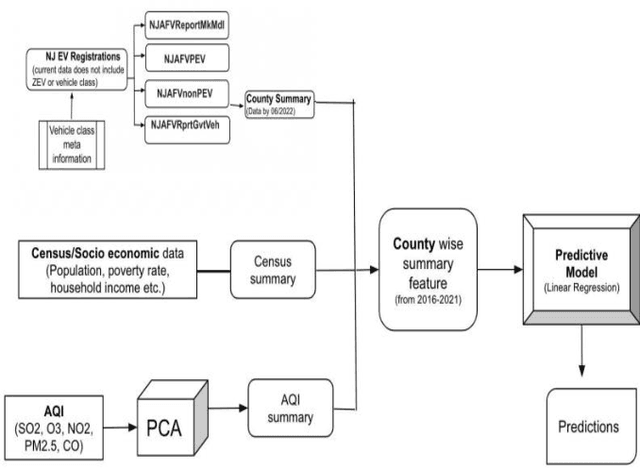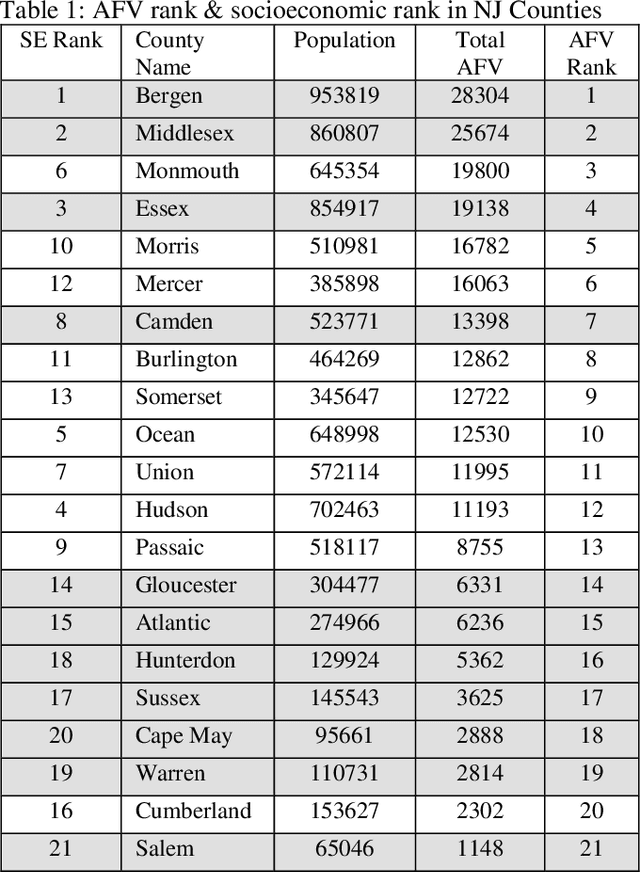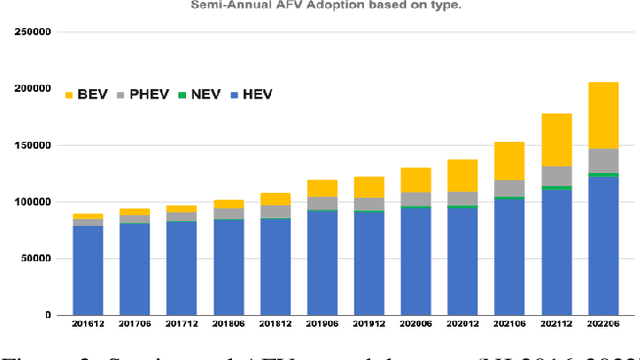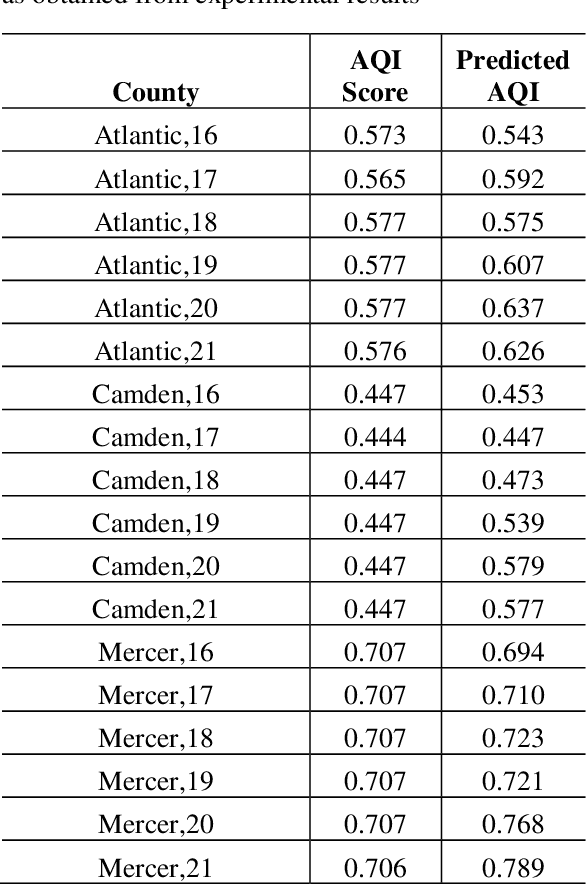Linking Alternative Fuel Vehicles Adoption with Socioeconomic Status and Air Quality Index
Paper and Code
Mar 15, 2023



This is a study on the potential widespread usage of alternative fuel vehicles, linking them with the socio-economic status of the respective consumers as well as the impact on the resulting air quality index. Research in this area aims to leverage machine learning techniques in order to promote appropriate policies for the proliferation of alternative fuel vehicles such as electric vehicles with due justice to different population groups. Pearson correlation coefficient is deployed in the modeling the relationships between socio-economic data, air quality index and data on alternative fuel vehicles. Linear regression is used to conduct predictive modeling on air quality index as per the adoption of alternative fuel vehicles, based on socio-economic factors. This work exemplifies artificial intelligence for social good.
 Add to Chrome
Add to Chrome Add to Firefox
Add to Firefox Add to Edge
Add to Edge